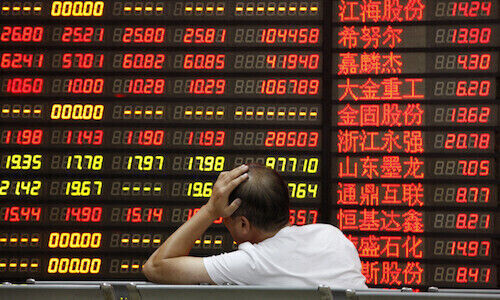Evergrande Shares Suspended
Trading Halted on Hong Kong Stock Exchange ahead of an expected announcement.
The shares of Evergrande, one of the largest property developers in China, were suspended on the Hong Kong Stock Exchange earlier today, according to an announcement made by the company.
The developer, which has been experiencing financial difficulties, has ostensibly been having difficulties servicing its debt and it is unclear whether it has made the necessary payments on a number of U.S. dollar bonds over the past two weeks.
Equities Sharply Lower
In Hong Kong, the announcement prompted renewed selling in the equity markets, with the Hang Seng Index down 2.3 percent at 24,011.56 in early afternoon trading.
Evergrande indicated that a major transaction announcement was likely imminent and that the shares would be suspended until that point.
Possibility of Contagion
There have been widespread fears of Evergrande's difficulties affecting other developers in China give the size and scale of its outstanding billion in debt, the size of which is unclear although various media have pointed to a $300 billion figure.
In its interim 2021 report, the company indicated that it had total borrowings of about $88 billion, and about $23 billion outstanding in senior subordinated notes, with a substantial proportion of them fully due this year and next.
Impact on Public Finances
Some experts, however, believe that the dangers do not lie among the property developers themselves or in Chinese real estate but have more to do with local government debt.
According to Qi Wang, CEO of MegaTrust Investment, the «real risk» lies in local government financing vehicles, called LGFVs.
These are quasi «corporate loans» issued by local governments, often backed by questionable projects and collaterals. According to him, such vehicles are the weakest link in the local government debt market, estimated at $7.7 trillion in total.
Wang also added that the «local government» is a large player in the Chinese real estate market as a result of its role in selling land and the financial health of local governments is «often closely related» to the property industry.



























